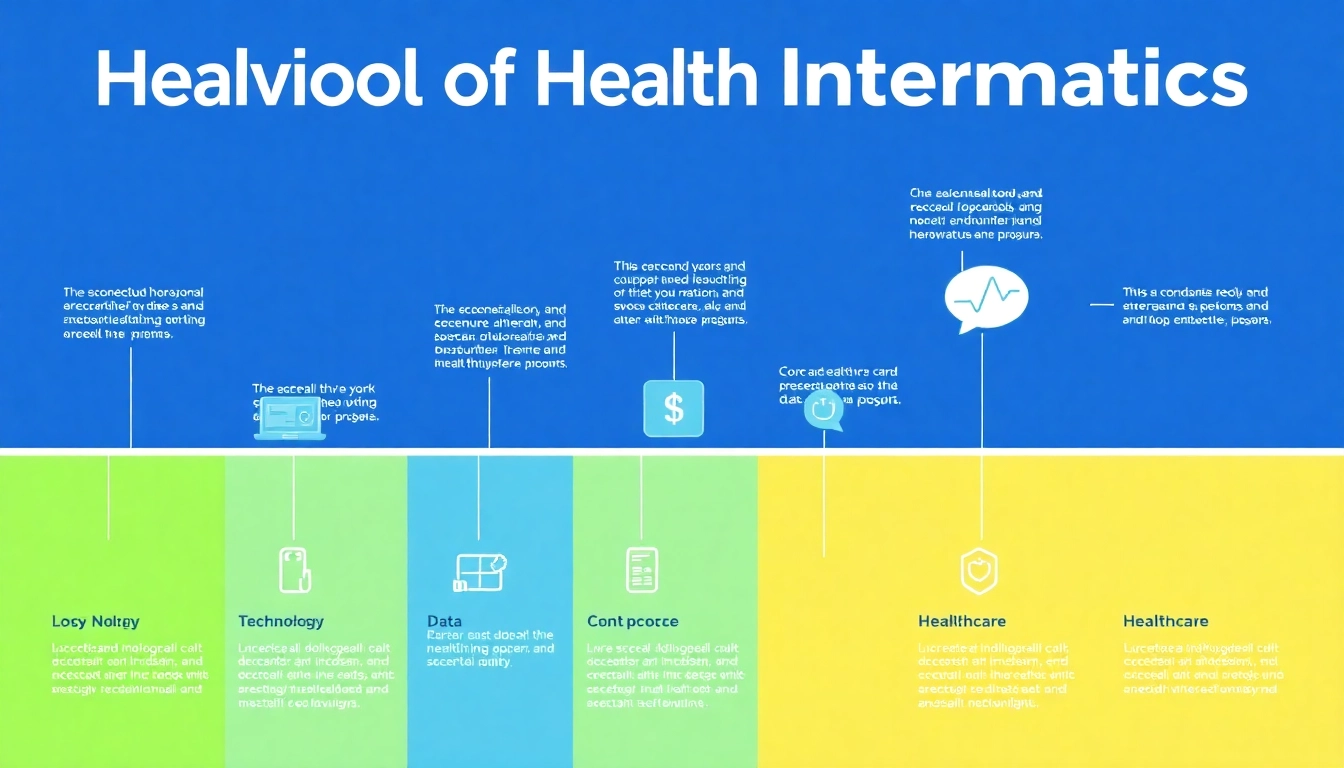Understanding Nursing Continuing Education
Nursing continuing education is paramount in the ever-evolving field of healthcare. With the advancements in technology, treatment protocols, and regulations, ongoing education allows nurses to remain competent and effectively uphold patient care standards. Whether you are looking to expand your knowledge or fulfill mandatory requirements, Nursing Continuing Education offers resources suited to your educational needs. This article delves into the importance of nursing continuing education, the requirements by state, the different types of courses available, and how to choose the right continuing education provider.
What is Nursing Continuing Education?
Nursing continuing education refers to educational activities designed to enhance the knowledge, skills, and attitudes of nurses throughout their careers. These courses are essential for promoting professional development and ensuring that nursing practitioners engage in lifelong learning. Continuing education can include formal classroom settings, online courses, webinars, and professional conferences. It typically results in continuing education units (CEUs), which are often required for license renewal.
Importance of Continuing Education for Nurses
The significance of nursing continuing education cannot be overstated. Firstly, it ensures that nurses are proficient in the latest medical practices, technologies, and regulations. This not only benefits their professional growth but also enhances patient safety and care quality. Additionally, continuing education helps nurses to specialize in areas such as pediatric nursing, geriatric care, or advanced practice roles, thereby enabling them to meet diverse patient needs.
Moreover, engaging in continuing education demonstrates a nurse’s commitment to their profession and a dedication to lifelong learning. In today’s rapidly changing healthcare landscape, this commitment is vital for addressing challenges effectively and advancing one’s career.
Licensure Requirements and CE Requirements by State
Each state has its own licensure requirements regarding continuing education. For instance, some states mandate that RNs complete a specific number of CEUs every year to qualify for license renewal, while others have alternative requirements such as completing a competency assessment or engaging in practice hours. Understanding these regulations is crucial for nurses to maintain compliance and retain their licensure.
Nurses should regularly consult their state’s nursing board or regulatory body for the most current requirements. Resources such as the American Nurses Association (ANA) or state-specific nursing boards provide detailed information on CE requirements, including approved courses and acceptable CEU formats.
Types of Nursing Continuing Education Courses
Online Versus In-Person Courses
Both online and in-person continuing education courses have their unique advantages. Online courses provide flexibility in scheduling and a broader range of topics, allowing nurses to learn at their own pace and convenience. These courses can often be accessed from anywhere, making them an excellent option for busy healthcare professionals.
Conversely, in-person courses offer interactive learning experiences, allowing for real-time discussions, networking opportunities, and direct engagement with instructors. Many nurses find value in the structured environment of in-person classes, which can enhance the learning experience through hands-on practice and collaborative learning.
When choosing between online and in-person courses, nurses should consider their learning preferences, schedule, and the specific skills or knowledge they wish to acquire.
Specializations and Advanced Topics
Continuing education courses are available across a plethora of specializations and advanced topics, including but not limited to:
- Critical Care Nursing
- Pediatric Advanced Life Support (PALS)
- Wound Care Management
- Diabetes Management
- Infection Control
These specialized courses not only deepen the nurses’ expertise in a specific area but also enhance their employability and ability to manage complex patient scenarios more effectively. Many healthcare facilities seek nurses with advanced knowledge in particular fields, making it beneficial for nurses to explore these avenues.
Free and Affordable Nursing CEUs
Affordability is a critical consideration in pursuing continuing education. Many organizations and institutions offer free or low-cost CEUs to support nurses in fulfilling their professional development needs. For instance, platforms like NursingCE.com and professional associations often provide free courses or discounts on certification programs.
Nurses can take advantage of these resources by regularly checking for promotions or free courses provided by accredited organizations. Engaging with local nursing associations can also lead to opportunities for subsidized continuing education programs, which are crucial in making professional development more accessible.
How to Choose the Right Continuing Education Provider
Accreditation and Approval Bodies
When selecting a continuing education provider, one of the most critical factors to consider is accreditation. Accredited programs ensure that the courses meet established standards for educational quality. In the U.S., the American Nurses Credentialing Center (ANCC) is one of the leading approval bodies for nursing continuing education. Other organizations, such as the American Association of Colleges of Nursing (AACN), also provide valuable resources for identifying accredited programs.
Choosing accredited courses enables nurses to confidently ensure that the CEUs they earn will be recognized by their state licensing boards and professional organizations.
Comparing Course Offerings and Formats
Nurses should evaluate the variety of courses offered by different providers to find those that align best with their personal interests and professional responsibilities. Some providers may focus on specific specializations or offer unique practical experiences that can significantly benefit participants. Additionally, examining the formats offered—such as self-paced online courses versus structured classroom settings—can help nurses cater their educational experience to their lifestyles and preferences.
It is advantageous to read reviews or testimonials from previous participants to gauge the effectiveness and satisfaction level for offered courses. Engaging in discussions with colleagues can also provide insights into which providers have been most beneficial to others in the profession.
Evaluating Fees and Subscription Models
Fees associated with continuing education courses can vary widely, so it is essential for nurses to evaluate the costs in relation to their budget and needs. Some providers offer unlimited subscription models, granting access to a broad range of courses for a flat annual fee. This model can be cost-effective for those who wish to engage in multiple courses throughout the year.
Conversely, pay-per-course models might suit nurses who only require a specific course or a limited number of CEUs. In evaluating these options, it is also wise to consider the quality of the courses provided, as the cheapest option may not always offer the best value in terms of learning outcomes or accreditation.
Benefits of Nursing Continuing Education
Enhancing Clinical Skills and Knowledge
Nursing continuing education is fundamentally designed to enhance clinical skills and knowledge, empowering nurses to provide the highest level of patient care. By engaging in these educational pursuits, nurses not only add to their expertise but often discover new evidence-based practices and innovations that they can apply in their work settings.
This knowledge enhancement translates directly to improved patient outcomes, as nursing practitioners become adept at utilizing the latest techniques and insights learned through their continuing education experiences.
Keeping Up with Nursing Trends and Innovations
The healthcare sector is characterized by constant change, from new technologies to evolving patient care strategies. Continuous education ensures that nurses stay updated with the latest trends, policies, and innovations influencing their practice. For example, emerging fields like telehealth have become increasingly important, and courses focused on such topics may be critical for modern nursing roles.
Furthermore, staying informed about contemporary issues in nursing leads to improved advocacy for patient care and a greater capacity for leadership within healthcare teams.
Networking Opportunities and Professional Growth
Participating in nursing continuing education courses also facilitates networking opportunities that can be invaluable for career growth. Engaging with peers and educators allows nurses to establish professional relationships, exchange ideas, and collaborate on best practices. These connections can lead to mentorship, job opportunities, and recommendations that might not be otherwise available.
Moreover, active involvement in educational activities can enhance a nurse’s visibility within their professional community, positioning them as thought leaders and advocates in their specialization.
Measuring the Impact of Continuing Education on Nursing Practice
Patient Outcomes and Quality of Care
One of the most significant impacts of nursing continuing education is its direct correlation with improved patient outcomes and quality of care. Studies have shown that nurses who engage in continuing education often exhibit enhanced competency, which positively influences their patients’ health. By implementing knowledge gained from CE courses, nurses can improve assessment accuracy, treatment effectiveness, and patient satisfaction rates.
Organizations often track these metrics to evaluate the effectiveness of their nursing staff, and regular participation in continuing education becomes a critical component in enhancing overall healthcare quality.
Tracking CE Participation and Progress
Tracking continuing education participation is essential for both personal growth and professional requirements. Many organizations and providers have systems in place to help nurses monitor their CEUs earned, courses completed, and areas of focus over time. This tracking not only assists in maintaining compliance with state regulations but also helps nurses identify gaps in their knowledge that they can address in future learning opportunities.
Feedback and Continuous Improvement
Engaging in continuing education provides an opportunity for nurses to receive feedback on their performance, further cultivating a culture of continuous improvement. Evaluation forms and course feedback allow educational program providers to refine their offerings, enhancing the learning experience for future participants. This feedback loop ensures that continuing education remains relevant, practical, and beneficial for nursing practitioners.
In conclusion, nursing continuing education is a vital component of professional practice that empowers nurses to keep pace with the evolving healthcare landscape. By engaging in diverse courses and utilizing available resources, nurses can enhance their skills, ensure compliance with licensure requirements, and ultimately provide the highest quality of care to patients.



